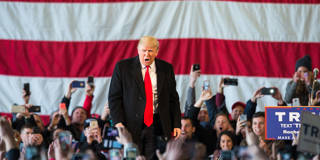OnPoint Subscriber Exclusive
Longer Reads provide in-depth analysis of the ideas and forces shaping politics, economics, international affairs, and more.

Liberalism’s Forever Crisis
Across Western democracies, one finds many who casually dismiss liberalism as a self-justifying ideology for economic “winners” or colonialism. But with conservatives openly fantasizing about imposing their moral orthodoxy on the whole society, liberalism’s critics should be careful what they wish for.
PRINCETON – Ever since the double shock of 2016 – when British voters decided to pull their country out of the European Union, and Americans elected Donald Trump as their president – we have been told that liberalism is in crisis. But which liberalism? Are we talking about a set of ideals, or about institutions such as the much-criticized “liberal global order,” or only about recent policies pursued in a number of Western countries, which may or may not have anything to do with a political philosophy plausibly labeled liberalism?